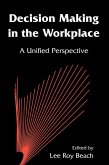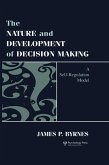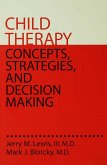Literature Review from the year 2021 in the subject Psychology - Industrial and organizational psychology, grade: 1,7, Maastricht University, language: English, abstract: This literature review examines the effectiveness of intuitive decision-making in organizations. The use of intuition in organizational decision-making is becoming increasingly common due to complex, fast-moving, ambiguous, and uncertain work conditions in today's organizations. As a result, managers' decision-making approaches must adapt to the growing intuitive nature of decisions. Intuitive decision-making yields opportunities to improve the decision effectiveness that can benefit organizations. When intuition is used effectively, it leads to creative, innovative, and qualitative outcomes. Furthermore, the use of intuition allows effective decisions to be made under time constraints and in complex situations. To foster effective intuitive decision-making in organizations, managers must consider the characteristics of the decision-maker, the decision task, and the decision environment in their actions. First, they should create an environment that allows for failure, encourages curiosity, and provide opportunities to make new experiences. Moreover, they should improve their employees' decision-making skills by building their expertise through training, mentoring, and feedback. Finally, managers can enhance the effective use of intuition in their organization by recruiting intuitive individuals based on their personality traits. This paper suggests that managers should acknowledge the presence of intuition in organizational decision-making and take measures to increase its effectiveness to take advantage of its benefits.
Dieser Download kann aus rechtlichen Gründen nur mit Rechnungsadresse in A, B, BG, CY, CZ, D, DK, EW, E, FIN, F, GR, HR, H, IRL, I, LT, L, LR, M, NL, PL, P, R, S, SLO, SK ausgeliefert werden.









